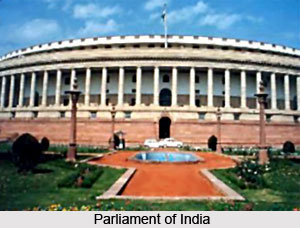 Elections in India are a reflection of the system of governance which is found existing in the country. India is a constitutional democracy with a parliamentary system of government, and at the heart of the system is a commitment to hold regular, free and fair elections. These elections determine the composition of the government, the membership of the two houses of parliament, the state and union territory legislative assemblies, and the Presidency and vice-presidency.
Elections in India are a reflection of the system of governance which is found existing in the country. India is a constitutional democracy with a parliamentary system of government, and at the heart of the system is a commitment to hold regular, free and fair elections. These elections determine the composition of the government, the membership of the two houses of parliament, the state and union territory legislative assemblies, and the Presidency and vice-presidency.
Laws Governing Elections in India
Elections are conducted according to the constitutional provisions, supplemented by laws made by the Indian Parliament. The major laws are Representation of the People Act, 1950, which mainly deals with the preparation and revision of electoral rolls, the Representation of the People Act, 1951 which deals, in detail, with all aspects of conduct of elections and post election disputes. The Supreme Court of India has held that where the enacted laws are silent or make insufficient provision to deal with a given situation in the conduct of elections, the Election Commission of India has the residuary powers under the Constitution of India to act in an appropriate manner.
System of Elections in India
Elections to the Lok Sabha are carried out using a first-past-the-post electoral system. The country is split up into separate geographical areas, known as constituencies, and the electors can cast one vote each for a candidate (although most candidates stand as independents, most successful candidates stand as members of political parties), the winner being the candidate who gets the maximum votes.
Eligibility for Voting
The democratic system in India is based on the principle of Universal Adult Suffrage. All citizens of India who are 18 years of age as on 1st January of the year for which the electoral roll is prepared are entitled to be registered as a voter in the constituency where he or she ordinarily resides. Only persons who are of unsound mind and have been declared so by a competent court or disqualified due to `Corrupt Practices` or offences relating to elections are not entitled to be registered in the electoral rolls. The right to vote is irrespective of caste, creed, religion or gender.
It may be mentioned here that in order to exercise one`s franchise it is essential to have one`s name registered in the electoral roll. An electoral roll is a list of all eligible citizens who are entitled to cast their vote in an election. The electoral rolls are prepared Assembly Constituency wise. An electoral roll for any Assembly Constituency is subdivided into parts corresponding with the polling booths.
Candidates eligible for Elections in India
Any Indian citizen who is registered as a voter and is over 25 years of age is allowed to contest elections to the Lok Sabha or State Legislative Assemblies. For the Rajya Sabha the age limit is 30 years. Every candidate has to make a deposit of Rupees 10,000 for Lok Sabha election and 5,000 for Rajya Sabha or Vidhan Sabha elections, except for candidates from the Scheduled Castes and Scheduled Tribes who pay half of these amounts. The deposit is returned if the candidate receives more than one-sixth of the total number of valid votes polled in the constituency. Nominations must be supported at least by one registered elector of the constituency, in the case of a candidate sponsored by a registered Party and by ten registered electors from the constituency in the case of other candidates. Returning Officers, appointed by the Election Commission, are put in charge to receive nominations of candidates in each constituency, and oversee the formalities of the election.
In a number of seats in the Lok Sabha and the Vidhan Sabha, the candidates can only be from either one of the scheduled castes or scheduled tribes. The number of these reserved seats is meant to be approximately in proportion to the number of people from scheduled castes or scheduled tribes in each state.
Polling Days of Elections in India
Polling is normally held on a number of different days in different constituencies, to enable the security forces and those monitoring the election to keep law and order and ensure that voting during the election is fair.
Scale of Operation of Elections in India
Elections in India are events involving political mobilisation and organisational complexity on an amazing scale. Conduct of General Elections in India for electing a new Lower House of Parliament (Lok Sabha) involves management of the largest event in the world. The electorate exceeds 670 million electors in about 700000 polling stations spread across widely varying geographic and climatic zones. Polling stations are located in the snow-clad mountains in the Himalayas, the deserts of the Rajasthan and in sparsely populated islands in the Indian Ocean.




















